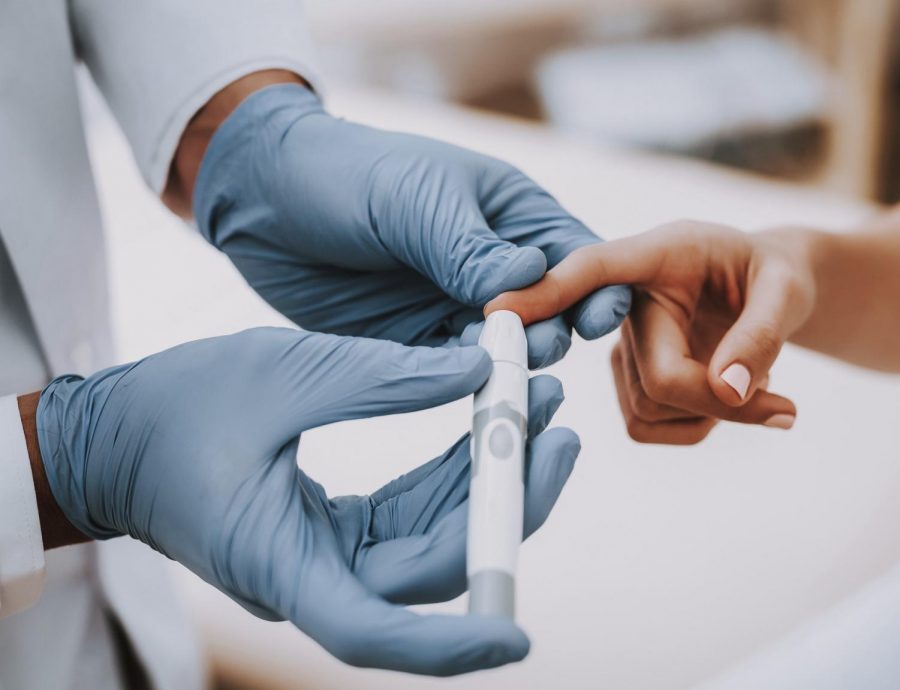With students across the U.S. beginning finals testing, life for a high schooler can be really stressful right now. However, classmates with diabetes may have much more to deal with.
“Diabetes makes it really hard for me to focus and get work done. After school, I generally like to do something fun and relaxing, like play video games with my friends. However, that also means I’m neglecting my diabetes. This often means when I come back from my break, I can’t focus because my blood sugar is bad, making it really hard to get work done,” said Jacob Linares, who is diagnosed with Type 1 diabetes.
Type 1 (most common for adolescents) is a chronic condition in which the pancreas does not makes little to no insulin. Insulin allows blood sugar (glucose) to enter cells in the body and be used for energy. Lack of insulin can lead to high blood sugar, which can cause fatigue, thirst, frequent urination, hunger, and more. Moreover, there is low blood sugar, known as hypoglycemia, which has additional side effects.
A person with diabetes needs to monitor and sustain blood sugar to lead a healthy life. Selfcare and management can take one to three hours a day on average and, if done incorrectly, can lead to even more time taken out of one’s day due to the side effects of abnormal blood sugar.

“I spend about an hour a day taking care of myself. It’s also a lot of passive waiting for my blood sugar to return to normal so I can get on with my day,” Linares said. “My sleep schedule is also messed up since I wake up in the middle of the night when my blood sugar is low or high.”
According to the 2020 CDC report on National Diabetes Statistics, approximately 10% of high schoolers have diabetes, making it a critical factor to consider in education.
“Type 1 diabetes affects more than just the child. We all need to help, especially when it comes to managing Type 1 diabetes in the school setting,” said MD Pediatric Endocrinologist Peter Gerrits.
In a study from the American Diabetes Association (ADA), it was found that GPA’s were on average lower for students who had poor self-management than those who maintained good metabolism (blood sugar plays a major role in metabolism). There is also evidence that suggests children with diabetes may experience behavioral difficulties which affect academic performance.
To help students with diabetes succeed, the ADA recommends that students make a Diabetes Medical Management Plan (DMMP) to plan out how a student will deal with diabetes in and out of a school environment. This includes discussing the plan with teachers and school staff so they know how to respond and properly deal with the situation and avoid misunderstandings. Diabetic students will often have to leave the classroom to access insulin or nutrition, so teachers need to be aware of the possibility.
Another issue diabetic students are facing is the increased risk and dangers of COVID-19. The ADA states that people with diabetes are more likely to have serious complications from COVID-19 and face serious symptoms. Moreover, it’s often the case that a diabetic child’s parents also have diabetes making it even more important for students with diabetes to avoid COVID-19 for their family’s safety.
However, the ADA also states that “Your risk of getting very sick from COVID-19 is likely to be lower if your diabetes is well-managed.”
It’s fair to say that students with diabetes are facing increased challenges to stay healthy and safe during these rough times. However, creating a safe environment and maintaining good self-care can lead to a positive lifestyle.
MD Endocrinology Sarena Ravi said, “The most important advice that I give to patients and really to anyone is to start today when it comes to taking care of your health and listening to your doctor.”


